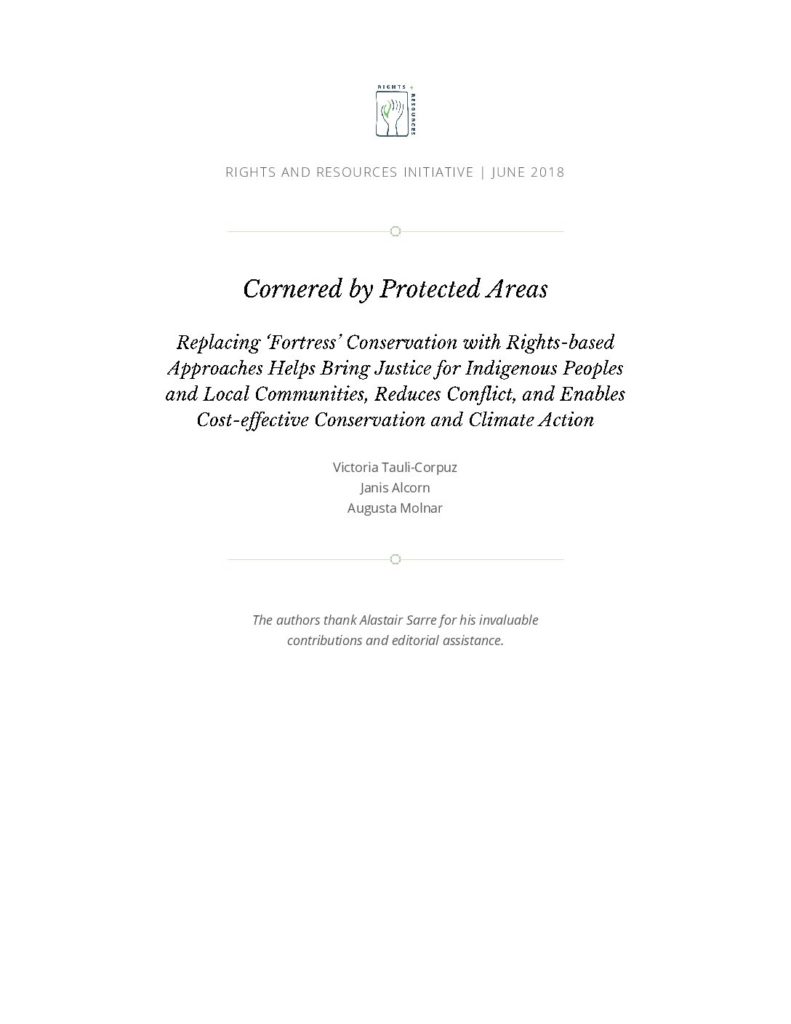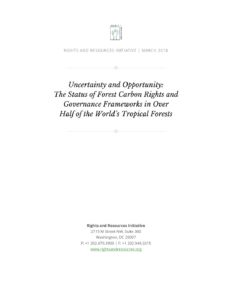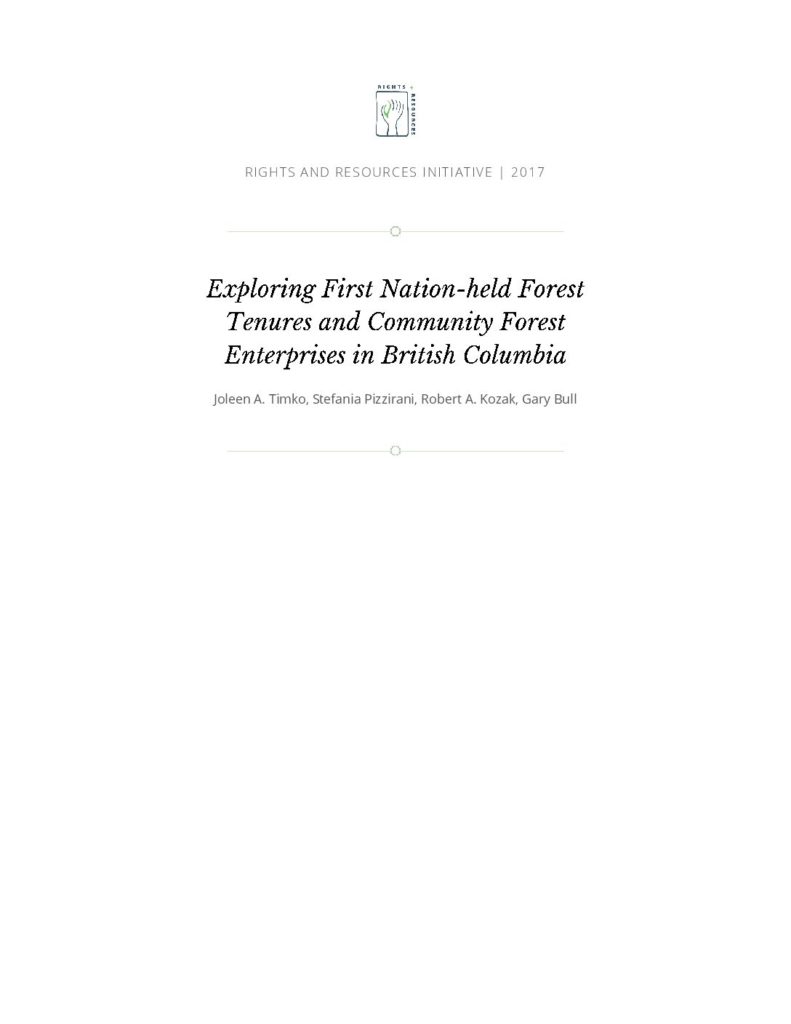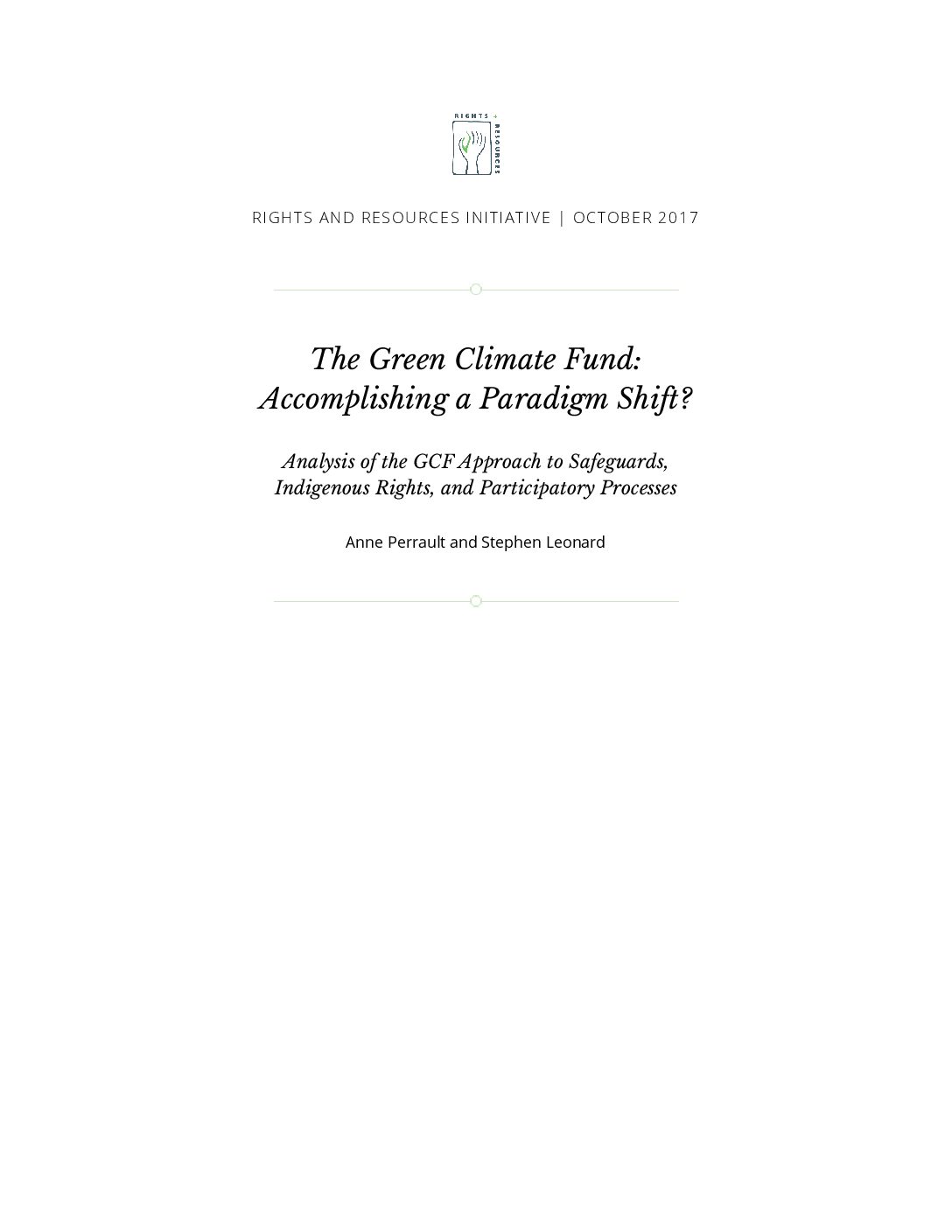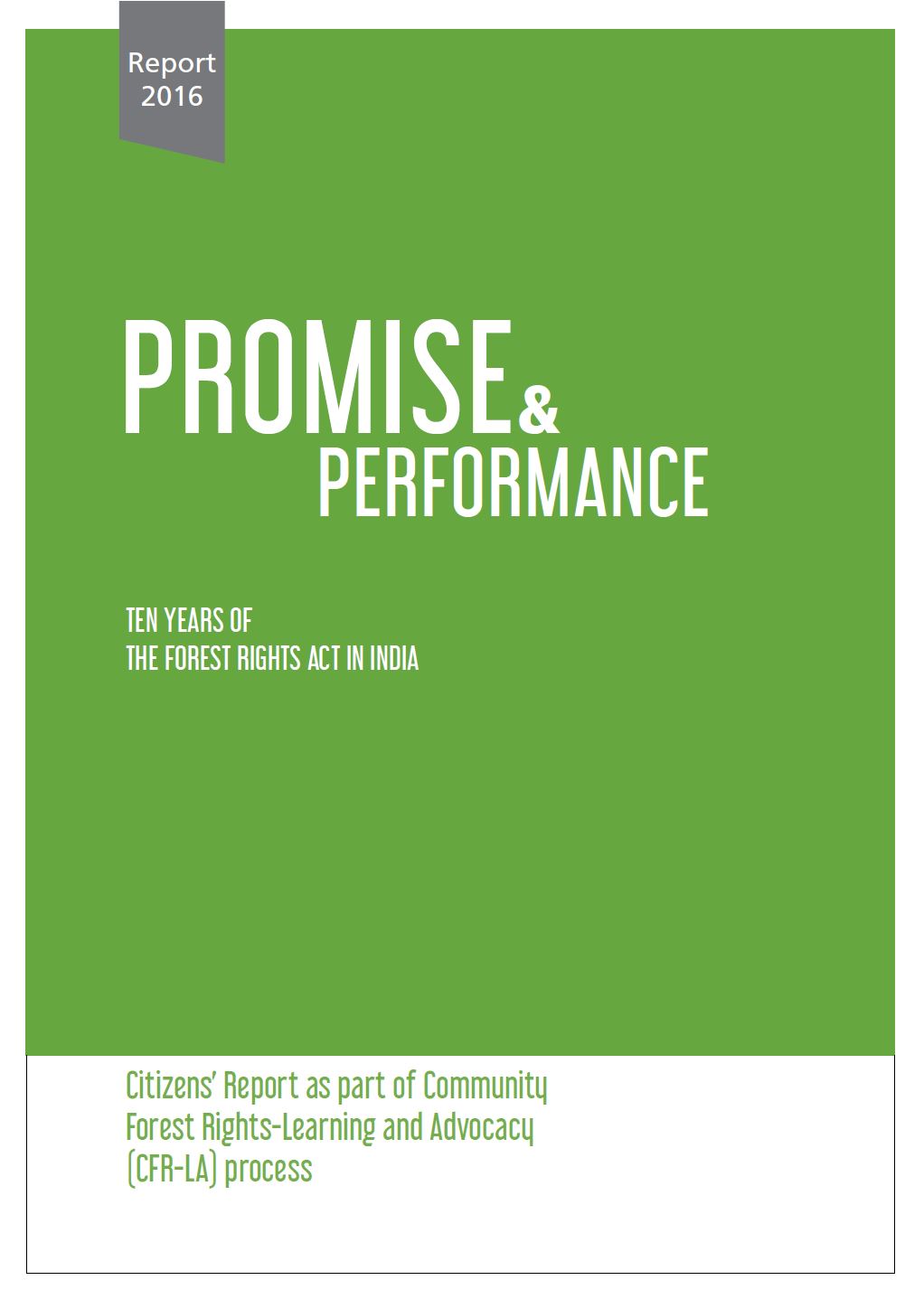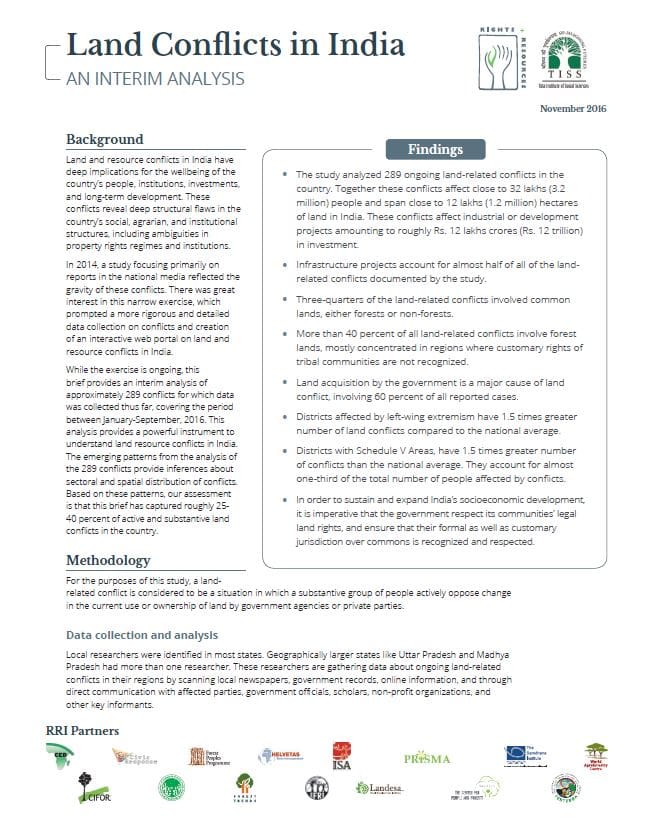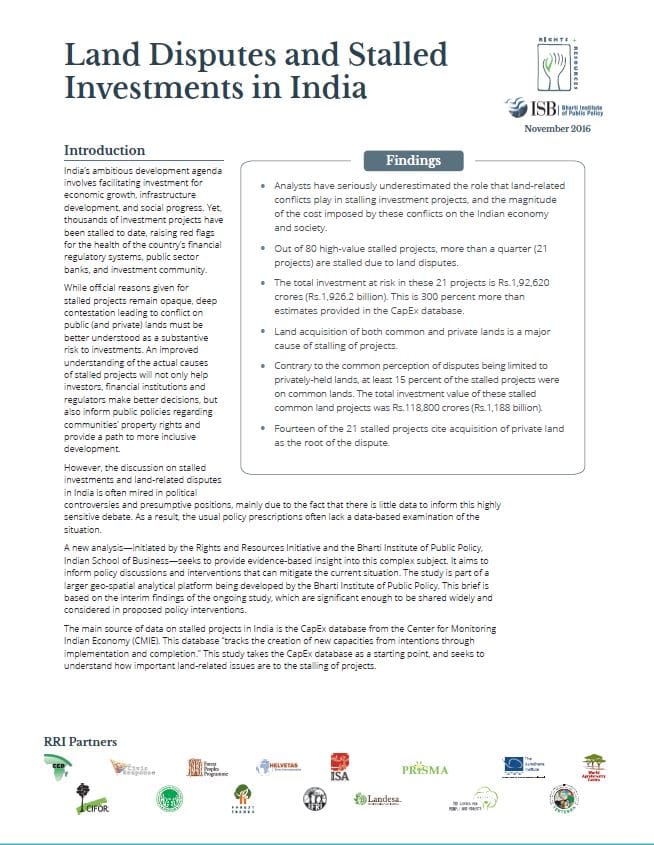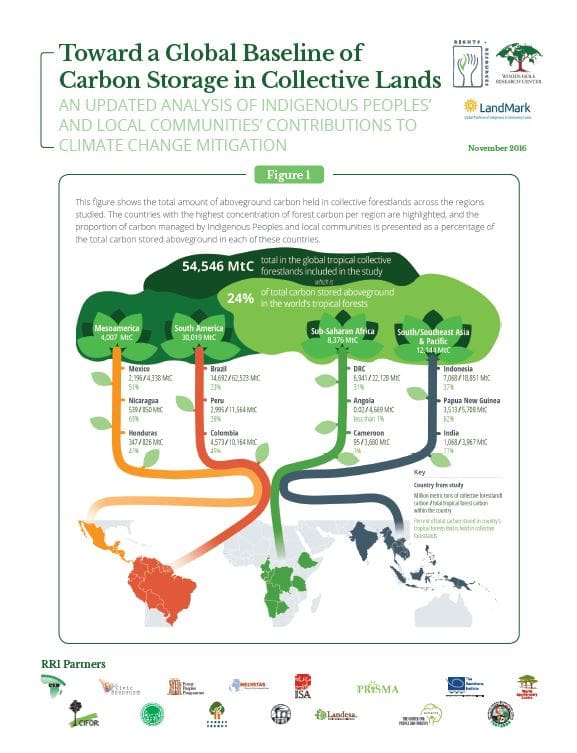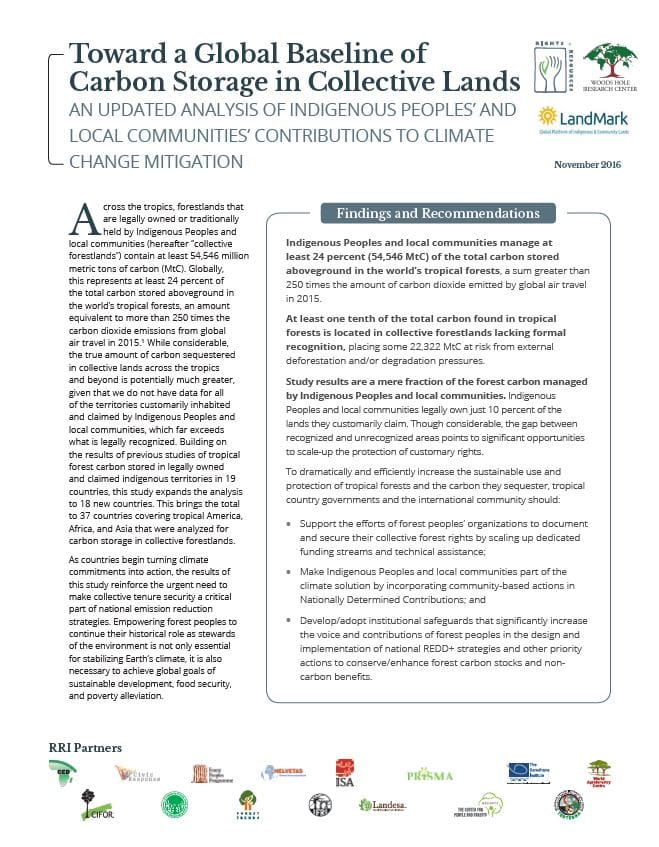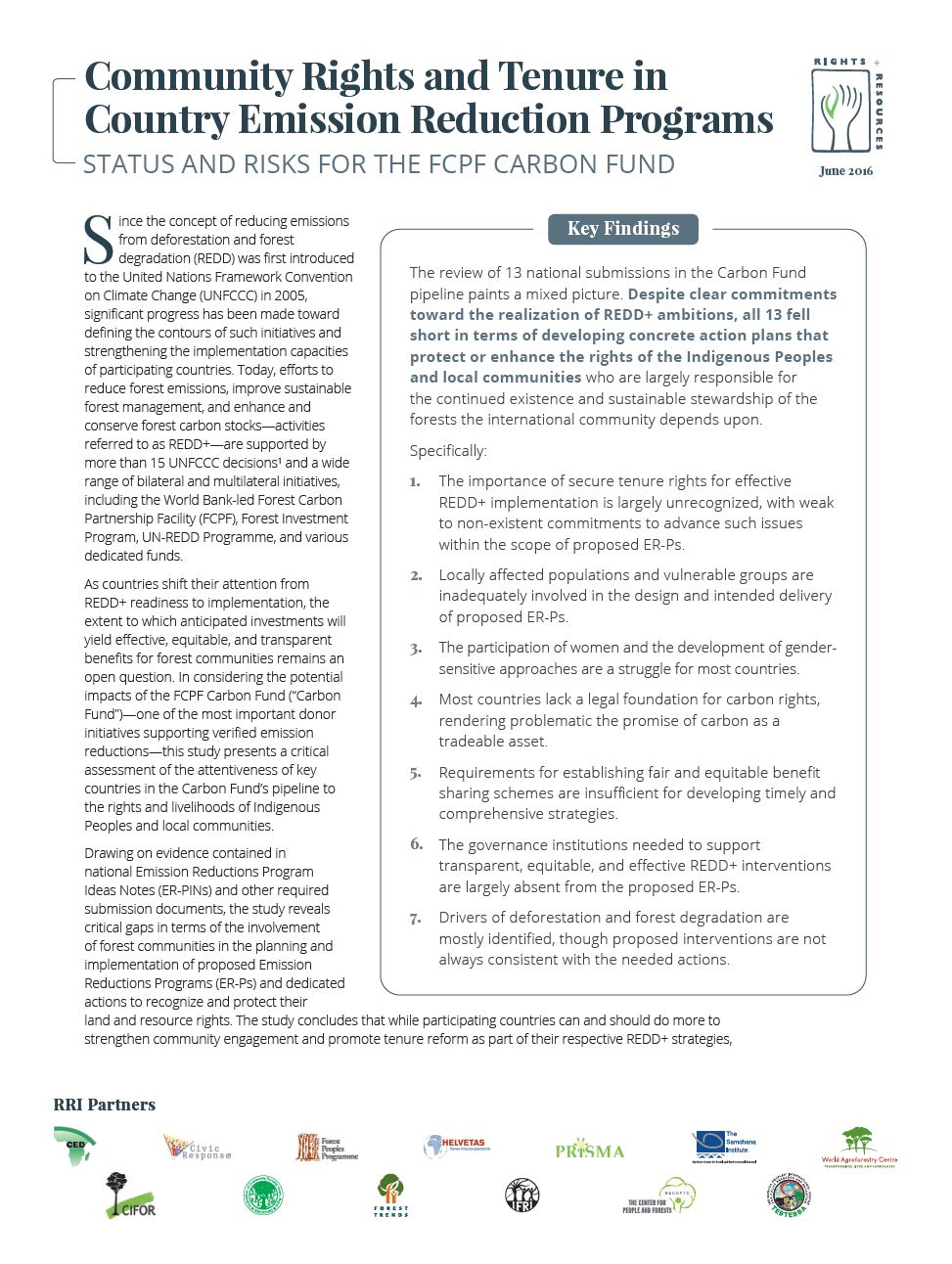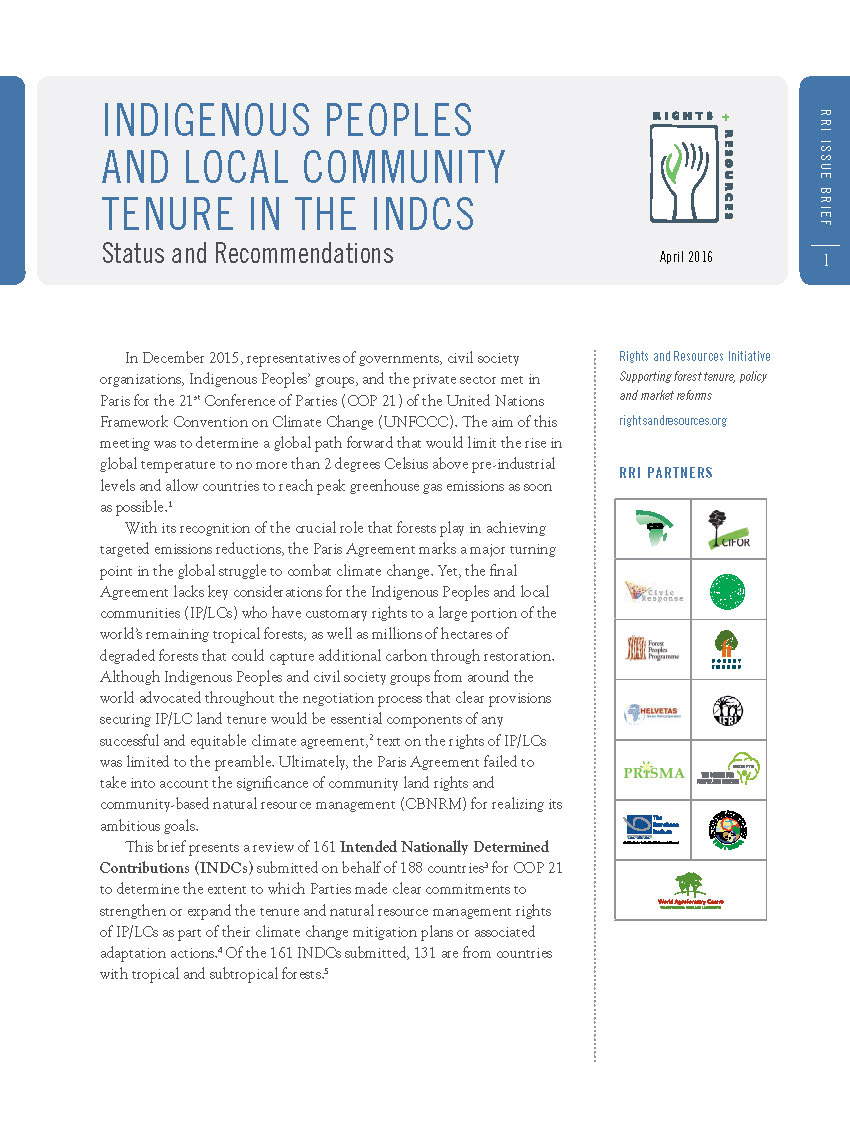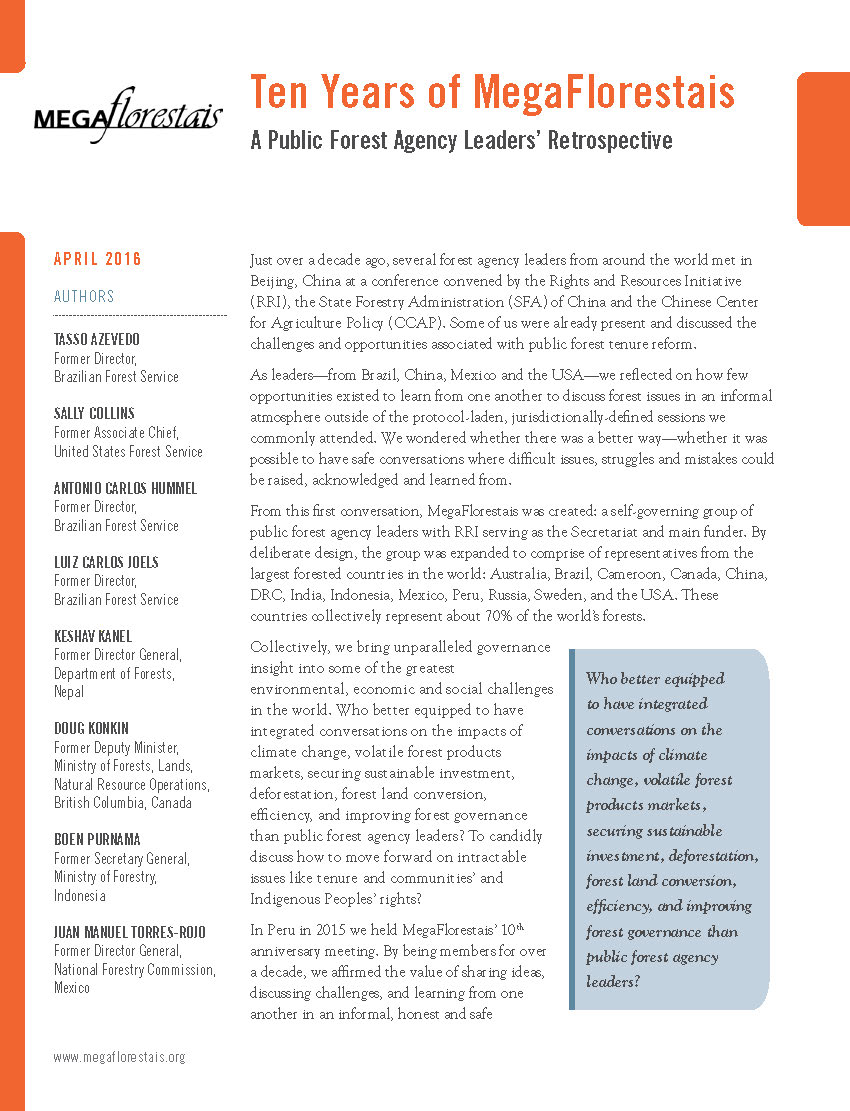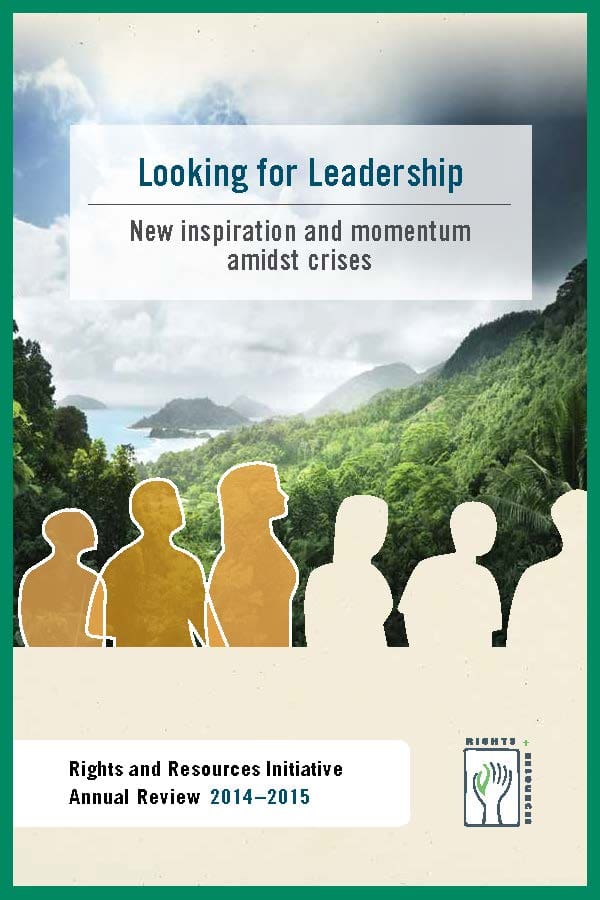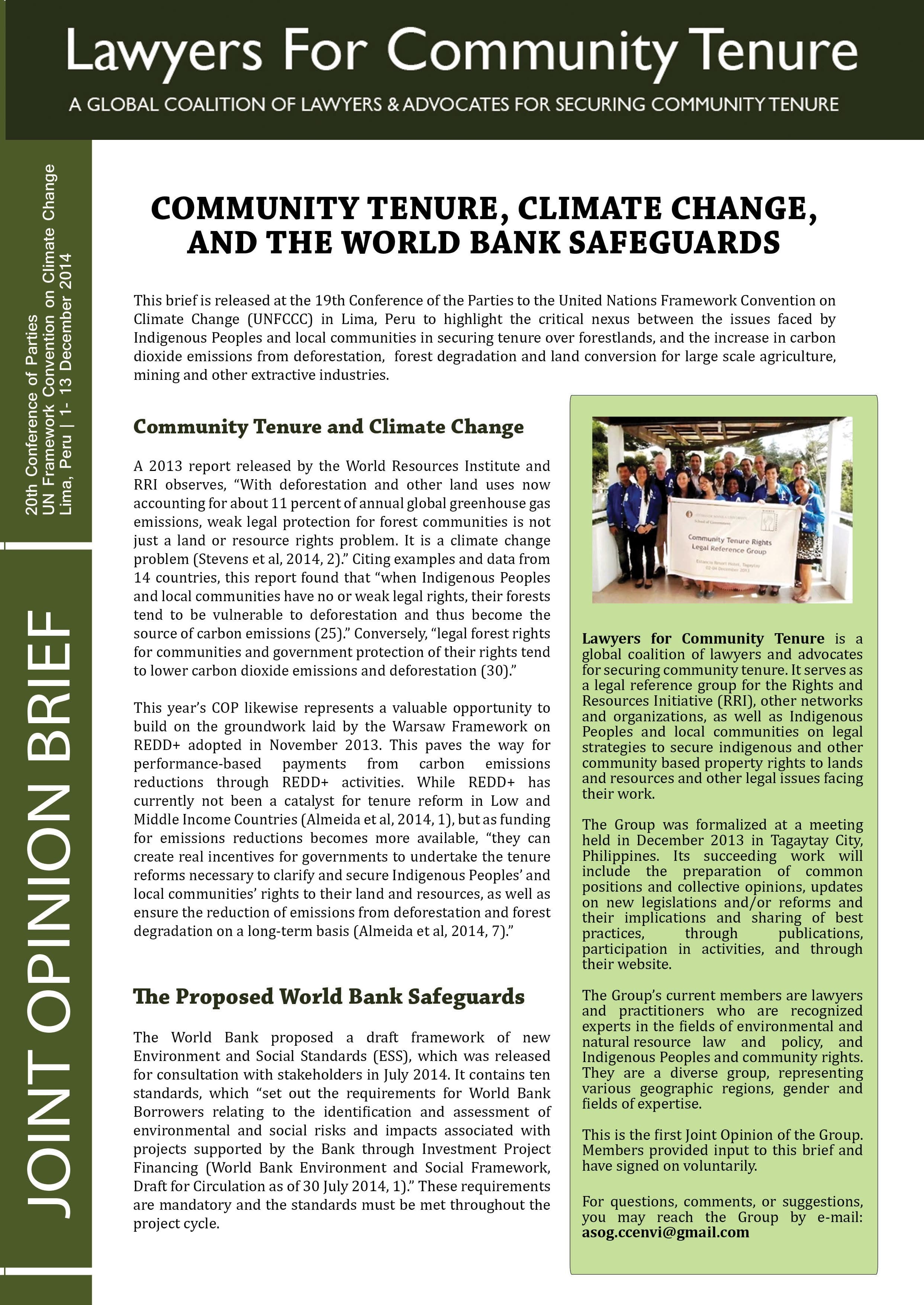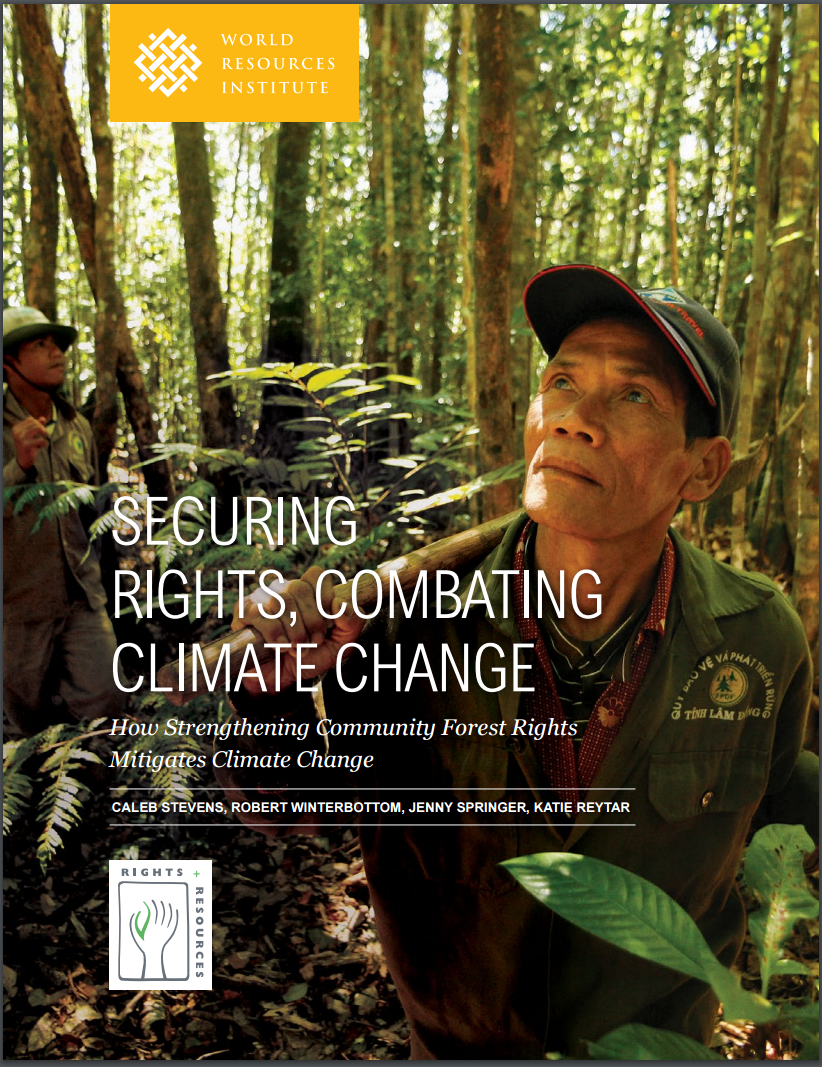This study reviews the status of the legal recognition of the rights of Indigenous Peoples, local communities, and Afro-descendant Peoples to the carbon in their lands and territories across 31 countries in Africa, Asia, and Latin America. Together, these countries hold almost 70 percent of the world’s tropical forests and represent at least 62 percent of the total feasible natural climate solution potential, and thus the bulk of nature-based emissions reductions and carbon offset opportunities in tropical and subtropical forest countries.
Esta análise mostra que a grande maioria dos países com florestas tropicais que procuram se beneficiar dos mercados internacionais de carbono florestal ainda não definiu na lei e na prática os direitos dos Povos Indígenas, comunidades locais e Povos Afrodescendentes sobre o carbono em suas terras e territórios consuetudinários.
This analysis shows that the vast majority of tropical forested countries seeking to benefit from international forest carbon markets have yet to define in law and in practice the rights of Indigenous Peoples, local communities, and Afro-descendant Peoples over carbon in their customary lands and territories.
This report is informed by the imperative to prevent the collapse of biodiversity while respecting the tenure and human rights of Indigenous Peoples (IPs), local…
This brief discusses legislative developments during COVID-19 in India, Indonesia, and the Philippines that undermine sustainable human-environment interactions and broader enjoyment of Indigenous and community rights over their customary territories.
If properly leveraged, natural climate solutions can contribute over 37% of cost-effective CO2 mitigation by 2030. Evidence shows Indigenous Peoples and local communities are key to achieving such outcomes. This report presents the most comprehensive assessment to date of carbon storage in documented community lands worldwide.

At a Crossroads: Consequential Trends in Recognition of Community-Based Forest Tenure from 2002-2017
This analysis reports on trends in global forest tenure from 2002-2017. It is the fourth in a series of analyses monitoring the legal recognition of forest tenure around the world.
Despite widespread poverty and insecure resource rights, evidence shows that Indigenous Peoples and local communities are still spending their limited resources on conservation efforts. They are also achieving outcomes that are at least equivalent to those of government-funded protected areas. This brief shows an urgent need to replace the fortress-conservation model with rights-based approaches to both improve conservation outcomes and end human-rights abuses committed in the name of conservation.
This brief presents a review of the nominal progress made in the national-level laws and regulations that govern the carbon trade and define the rights of parties—across a sample of 24 countries in Africa, Asia and Latin America. These countries collectively hold more than 50 percent of global tropical and subtropical forests.
The purpose of this report is to situate existing knowledge on First Nation-held forestry tenures and community forest enterprises (CFEs) in British Columbia, Canada within a broader discussion about Indigenous and non-Indigenous community forests in Canada.
Drawing on international standards and Green Climate Fund policy documents, this report traces the adequacy and implementation effectiveness of the Fund’s current institutional frameworks across a representative sample of approved projects. Noting critical gaps in nearly every aspect of the Fund’s operational modalities and project approval processes, the report calls on the GCF to take progressive steps to make Indigenous Peoples’ and local communities’ rights a key part of its climate actions going forward.
Amid the realities of major political turbulence, there was growing recognition in 2016 that community land rights are key to ensuring peace and prosperity, economic development, sound investment, and climate change mitigation and adaptation.
This report highlights FRA’s potential in transforming forest governance by empowering local communities and the gram sabha to protect and conserve forests; ensuring livelihood security and poverty alleviation; securing gender justice; meeting SDG, especially the goals of eliminating poverty and achieving ecological sustainability; and dealing with climate change.
This analysis provides a powerful instrument to understand land resource conflicts in India. Based on the emerging patterns from the analysis of the 289 conflicts, our assessment is that this brief has captured roughly 25- 40 percent of active and substantive land conflicts in the country.
This analysis seeks to provide evidence-based insight into the thousands of investment projects stalled to date in India.
Compelling quantitative evidence of the unparalleled role that forest peoples have to play in climate change mitigation.
A new report quantifying the carbon stored aboveground in tropical forests that are legally owned or traditionally held by Indigenous Peoples and local communities in 37 countries across tropical America, Africa, and Asia.
Between June and August 2016, the Colombian government made two announcements that will profoundly change the country. After four years of peace negotiations with the FARC guerillas,…
New research from RRI reveals that 13 submissions to the World Bank’s Carbon Fund–one of the most advanced REDD+ initiatives–either fail to recognize the importance of land rights or adequately include local peoples in key decision-making processes.
A review of submitted Intended Nationally Determined Contributions to determine the extent to which Parties made clear commitments to strengthen or expand the tenure and natural resource management rights of Indigenous Peoples and local communities as part of their climate change mitigation plans.
Just over a decade ago, several forest agency leaders from around the world met in Beijing, China at a conference convened by the Rights and Resources…
RRI’s annual review of the global state of rights and resources
This joint-opinion brief is released at the 19th Conference of the Parties to the United Nations Framework Convention on Climate Change (UNFCCC) in Lima, Peru to…
An analysis of the growing body of evidence linking community forest rights with healthier forests and lower carbon dioxide (CO2) emissions from deforestation and forest degradation.


